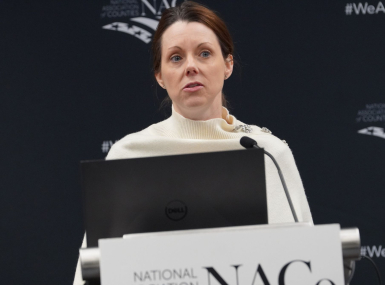U.S. House passes bipartisan tax package
Author

Paige Mellerio
Upcoming Events
Related News

On January 31, the U.S. House of Representatives passed the bipartisan Tax Relief for American Families and Workers Act of 2024 (H.R. 7024) by a 357-70 vote. Read NACo’s earlier breakdown of the legislation here.
Supporting vulnerable county residents: Counties support the provisions in the legislation expanding the CTC and making modest enhancements to the Low-Income Housing Tax Credit (LIHTC), both of which will improve our efforts on the ground to help low-income families achieve economic stability.
- View NACo’s letter urging passage of provisions expanding the CTC here.
- View NACo’s letter urging passage of provisions expanding LIHTC here.
Alternative action on SALT: Although the package does not provide relief from the $10,000 State and Local Tax Deduction (SALT) cap, a key county priority, House lawmakers are pursuing a separate measure, the SALT Marriage Penalty Act (H.R. 7160) that would double the SALT cap, or raise it to $20,000, for married filers. This is a welcomed first step in providing our communities with relief from the SALT cap and we urge Congress to pass this bill.
- View NACo’s letter calling for action on the SALT cap here.
Legislative Outlook: Although H.R. 7024 passed the House with an overwhelming majority, it faces an uncertain outlook in the Senate, where some Republican lawmakers have expressed opposition to the CTC provisions and are seeking an amendment process on the floor. NACo will continue to monitor progress on the package.
Related News

National Association of Counties Reinforces Intergovernmental Partnership in Response to State of the Union Address
The National Association of Counties (NACo) responded to President Trump’s State of the Union address with a statement from Executive Director Matthew Chase.

Congress seeking ‘common-sense solutions’ to unmet mental health needs
Rep. Andrea Salinas (D-Ore.): “Right now, it is too difficult to access providers … and get mental health care in a facility that is the right size and also the appropriate acuity level to meet patients’ needs.”

Federal-level child welfare priorities center on supporting foster youth, families
Child welfare experts outlined current priorities at the federal level, including better supporting foster care youth who age out of the system and recruiting more foster parents, at NACo’s Human Services and Education Policy Steering Committee meeting.

